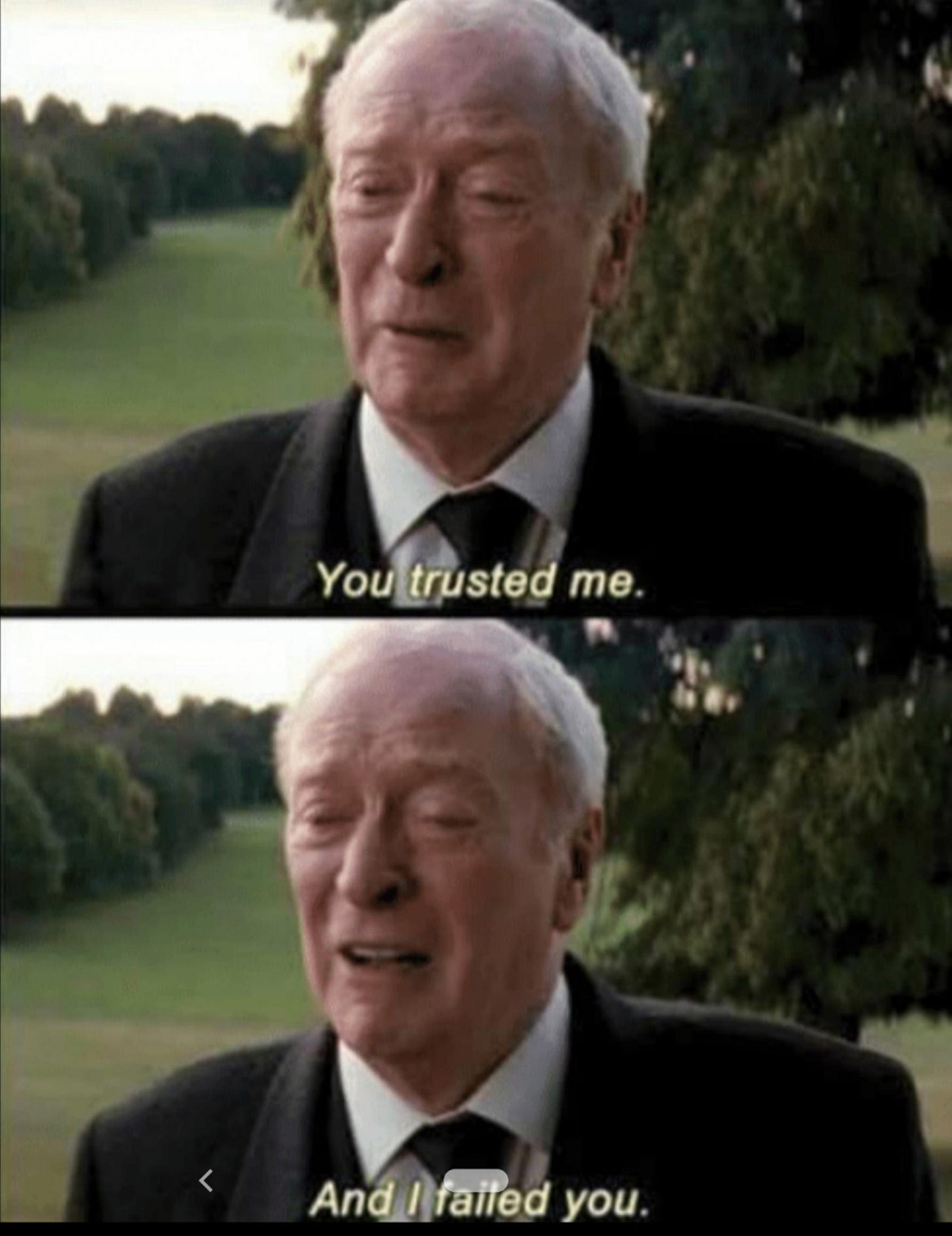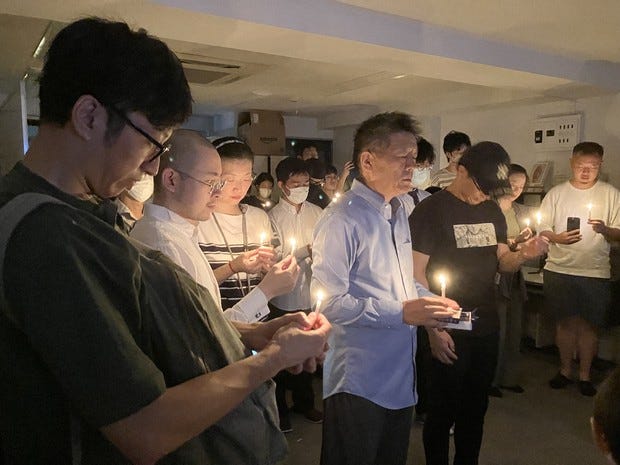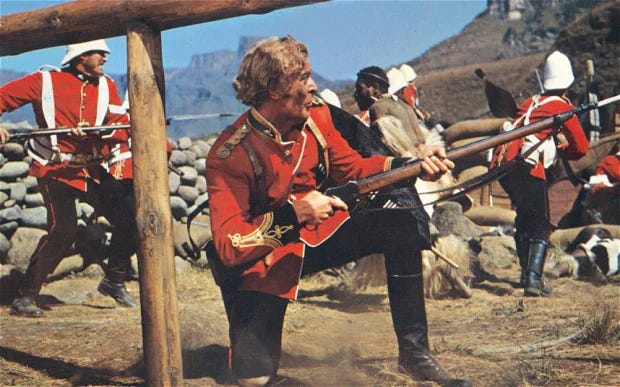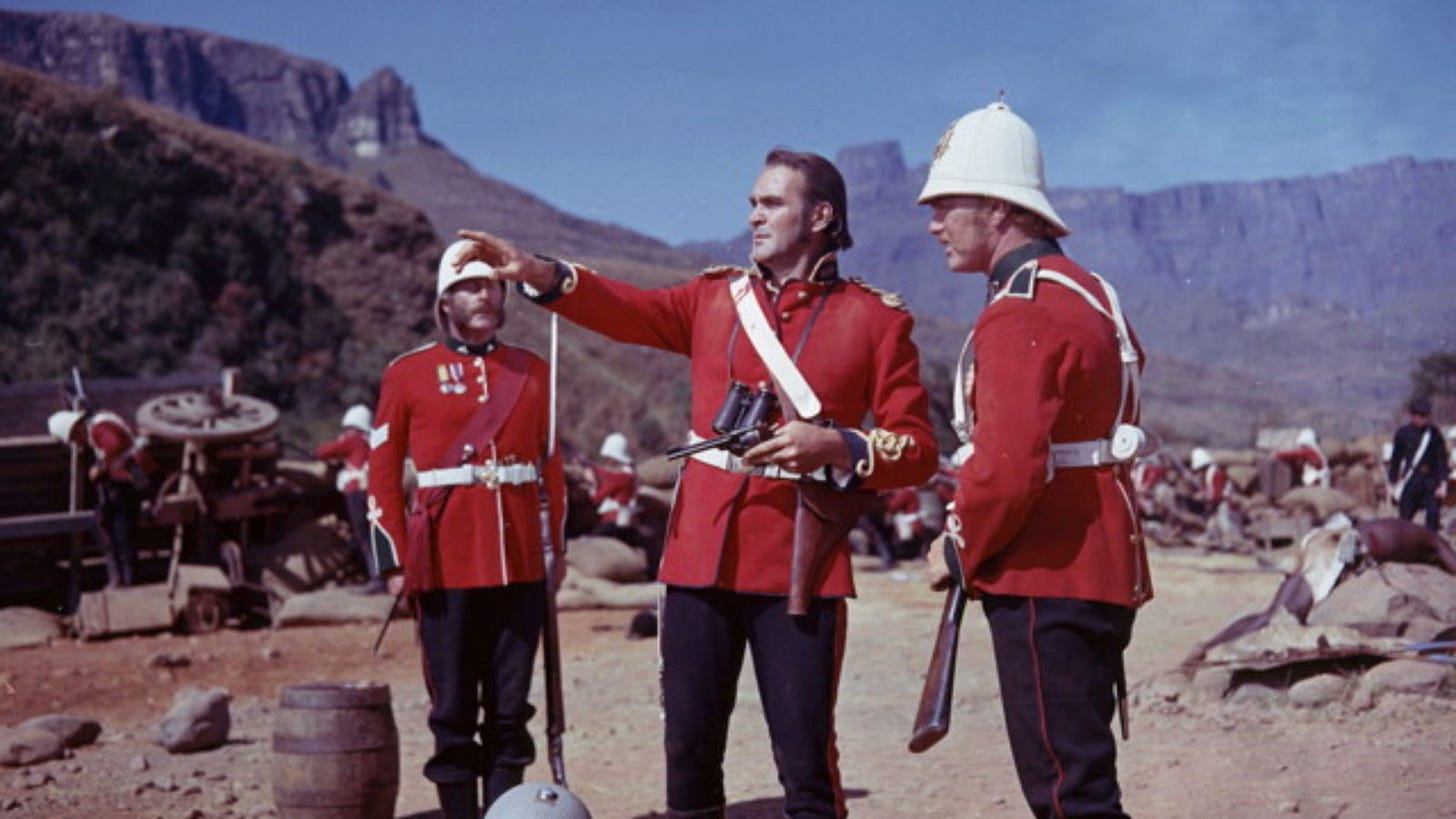Bonus Perspectives: Trump Lives (Again), Japanese Boy Murdered in China, "Zulu," and the Erhu
My weird indirect connection to the second Trump assassination attempt, Japan-China relations worsen, and your weekly media recommendations.
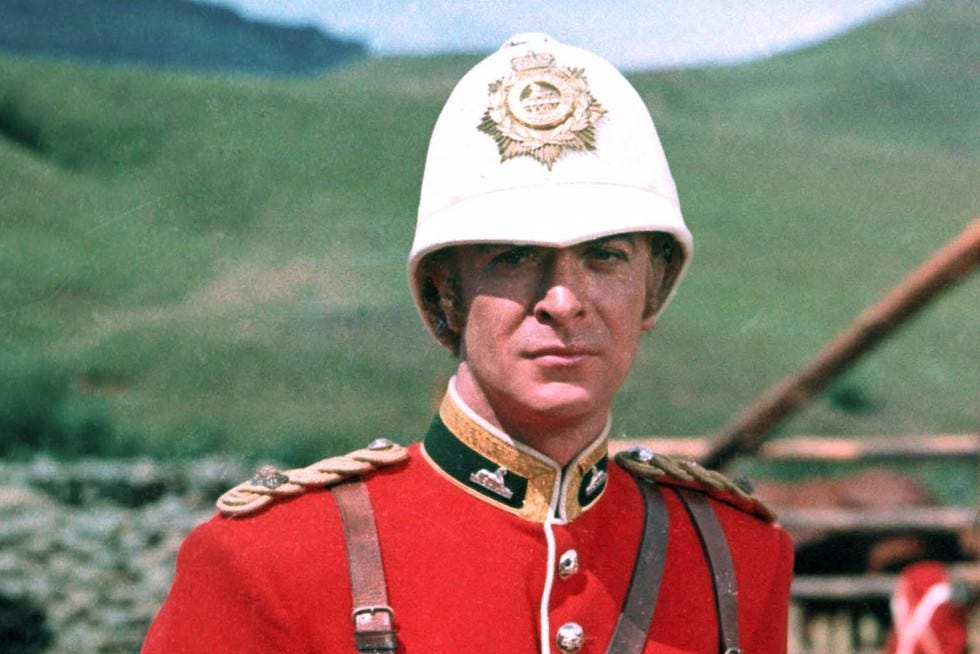
Bonus Perspectives is a weekly column series containing my thoughts on the latest Western news and Japanese news, as well as film, television, music, book, and video game recommendations. It’s free for all subscribers to this Substack, but if you enjoy my writing, consider opting for a paid subscription. Doing so will give you access to exclusive in-depth pieces and my entire backlog of work. Your support is greatly appreciated!
Paid subscriptions are currently 20% off from now until the end of October.
Before we begin…
I apologize for this week’s edition of Bonus Perspectives being out much later than usual. I try to aim for these columns to go out on Monday or Tuesday, but if you’re reading this now, it’s currently Saturday. There’s not much I can say other than I screwed up with my time management.
I’m currently in the middle of renewing my student visa and starting a new semester of my PhD while also working a part-time job with long hours, so it’s gotten quite difficult to write in as timely of a matter as I would like. As a result, some of the material I’m covering this week may be less relevant than it would have been had this been posted earlier, but that’s just the way it goes sometimes when I begin these pieces. The biggest story this week is that outsider Shigeru Ishiba was elected by Japan’s ruling Liberal Democratic Party as the country’s new de facto new prime minister and a lot of people have been asking me for my thoughts.
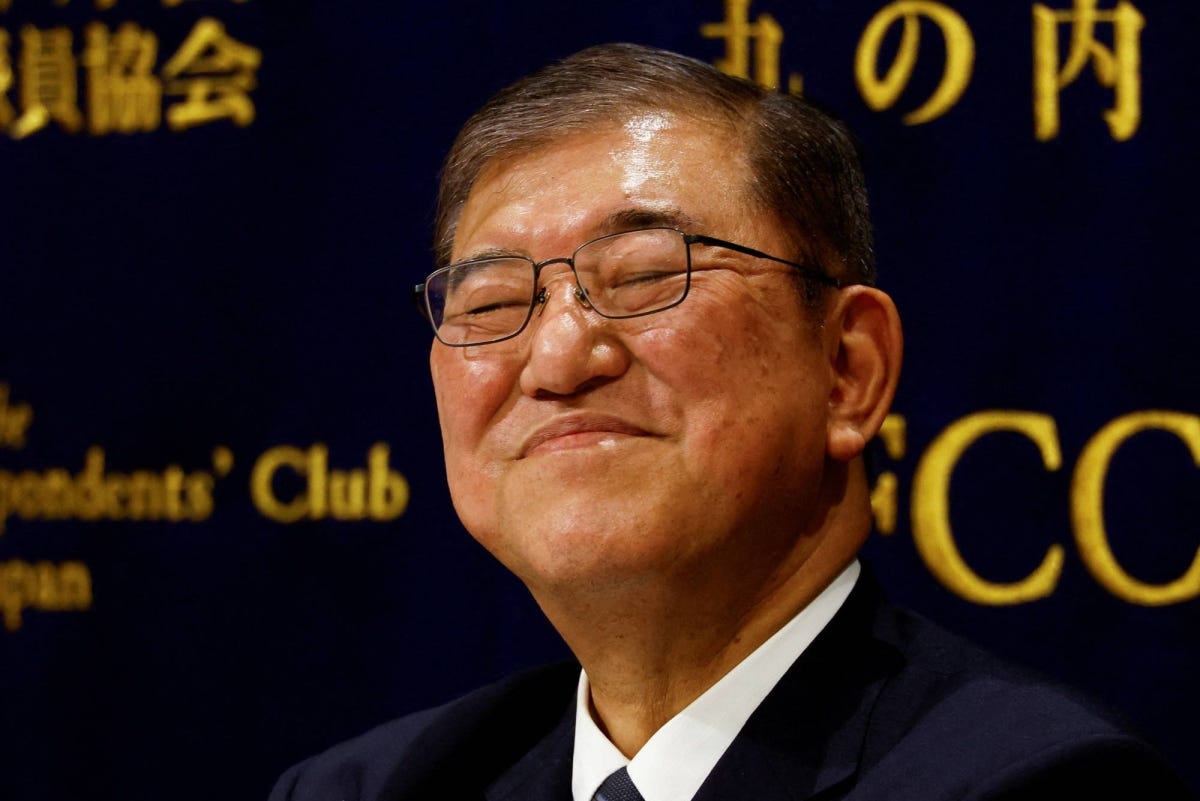
Frankly though, I’m still reading up on Ishiba as I never followed his career or ideology that deeply until now. I will probably weigh in with more detailed thoughts when he’s actually running Japan, so there’s not much I can say at this point other than we’re in uncharted territory and that this marks a pretty significant rejection of the legacy Shinzo Abe left behind. Ishiba was a known critic of Abe, so I recommend reading Tobias Harris’ excellent rundown on how he differs from the late former prime minister.
In the meantime, I hope you will find what I have to say this week on other topics interesting regardless. Since this column is coming out quite late, I’ve made the decision to take next week off with Bonus Perspectives so I can dedicate time to other articles. I’m aiming to post something brief on Monday about a potentially exciting new development for me, and I’m currently writing the first in a multipart Japan travelogue article series that will be exclusively available for paid subscribers of this Substack. That will hopefully be out toward the end of next week, with Bonus Perspectives resuming as usual for all subscribers around the following Monday or Tuesday.
I want to once again thank everyone who supports Foreign Perspectives. I would not be able to do this without you and your patronage makes this a sustainable enterprise. My scholarship for my doctoral program ended this month, so I will have to look for other sources of funding as I work my part-time job and search for freelance writing opportunities. If you enjoy the writing I put out on this Substack, consider a paid subscription if you do not have one already. Remember, it isn’t a donation. You’re paying for in-depth articles on a variety of subjects from life in Japan to film criticism. I’m very grateful to all who have subscribed to this Substack and I hope I can end 2024 on a strong note.
Trump dodges another assassination attempt — and I have an odd indirect connection to the suspect
So here’s another important story that, like the Trump-Harris debates, I’m late to the party in covering. Less than two months after narrowly dodging one assassination attempt, the former president of the United States escaped another on September 15. With most political assassination plots, however, it’s always best to wait a while until all the facts come in.
As far as has been revealed, a man named Ryan Wesley Routh waited outside Trump’s Florida club for almost 12 hours in the hopes of gunning down the presidential candidate with a rifle. Secret Service agents reportedly saw Routh aiming his weapon 400 to 500 yards away from Trump, which resulted in them immediately opening fire in defense. The suspect fled the scene without using his weapon, but was shortly arrested in an adjacent county. In contrast to the last assassination attempt, Trump himself was unarmed and avoided being hit by any bullets.
Routh had apparently been lying in wait for Trump for nearly 12 hours, which suggests that he put in a considerable amount of planning into his botched scheme. Yet everything I’ve read about the suspect leads me to conclude that he’s little more than a deranged lunatic with no coherent ideology. That could also be said for the late Thomas Matthew Crooks of Trump assassination attempt No. 1, but the 20-year-old man more or less fit a profile similar to that of an anti-social school shooter. As far as I can tell, Crooks had no real politics to speak of, which is frustrating for those looking for a solid motive, but not actually that extraordinary when mental illness is a far easier explanation.
Would-be Trump assassin No. 2 is assuredly not playing with a full deck either, but he differs from Crooks in several notable ways. First and most obvious, he’s actually alive. It remains to be seen what, if anything, he will tell law enforcement, but I expect years of legal procedures before we get the full story. Second, Routh is far older than Crooks. At around 57 years old (his precise date of birth is undetermined at this time), the recklessness of youth cannot be considered a factor in his plot. Mental illness aside, we have more of his past life experiences to draw on to understand how he got to this point. Third, Routh already has a lengthy criminal record of illegal firearm possession, clashes with law enforcement, driving without a license, a hit-and-run, and ownership of stolen goods. It’s a wonder that this model citizen hasn’t killed anyone already.

Most bizarre is trying to piece together Routh’s ideology, which is a labyrinth of contradictions. The above photo is Routh at a rally in Kyiv in April 2022. The man portrayed himself as a passionate defender of Ukraine in its war against Russia and even traveled to the region hoping to participate in the fight, but was rejected due to his lack of combat experience. He has voted both for Democrats and Republicans, but is unaffiliated with either party. While he previously expressed public support for Trump, he later condemned the president for the January 6, 2021 riots and has endorsed Tulsi Gabbard, Joe Biden, Nikki Haley, and Vivek Ramaswamy. Partisans will assuredly want to try to lump Routh in with their political rivals, but his beliefs are not so clear-cut because they’re all over the spectrum.
I happen to have a very odd, indirect connection to Routh. In addition to his flip-flopping politics and unsuccessful attempt to join the Ukrainian military, he appears to hold a deep fascination with foreign policy issues. While I have not read his 291-page self-published book (which incredibly is still for sale on Amazon, at least here in Japan), its contents are probably as wacky as its theatrical title, Ukraine's Unwinnable War: The Fatal Flaw of Democracy, World Abandonment, and the Global Citizen—Taiwan, Afghanistan, North Korea, WWIII and the End of Humanity. Routh’s social media has since been deleted, but it was recently brought to my attention that he followed some notable people related to me on Twitter.
Sung-Yoon Lee, Soo Kim, and Colin Zwirko are all specialists in my field of North Korean studies. They follow me, I’ve spoken with them either via direct messages or in person, and we’re all in the same circles. I have no idea if Routh ever followed my Twitter account, but given his interest in North Korea and these individuals, he clearly was aware of NK News, which is an outlet my friend Colin and I both contribute to. As expected, conspiracy theorists are trying to make a connection between him and Soo Kim, since she used to work for the CIA.
I can confidently say that all of this speculation is nonsense. While Soo Kim indeed has CIA connections, she has always been open about them and has used her background to contribute insightful commentary to NK News. There are claims that Kim also followed Routh, but I haven’t been able to confirm this. Even if this was true though, it doesn’t exactly prove anything. I’ve followed plenty of accounts who later turned out to be unhinged psychopaths, but that doesn’t mean I endorsed their worldviews. When I informed Colin that Routh had been following him, he was taken by surprise and told me he had no idea.
I’ve really only scratched the surface with the rabbit hole that is Ryan Routh, but my ultimate conclusion is that he’s little more than a disturbed individual with an existing criminal history and delusions of grandeur who finally snapped. Him taking a greater interest in geopolitics than the average American doesn’t mean that the CIA recruited him to assassinate Trump or that there’s a grand conspiracy at play here. We will assuredly learn more in the months and years to come long after the 2024 election, but no one should be surprised when it turns out that he’s just a mentally ill individual who decided to make a spectacle.
A 10-year-old boy’s murder in China shows the depths of modern anti-Japanese sentiment
Most foreigners have the general impression that things are often tense between Japan and China, but this is a textbook example of what happens when such feelings spiral out of control.
After being stabbed in front of his school in Shenzen, China, a 10-year-old Japanese boy succumbed to his injuries on September 19. The suspect is a 44-year-old Chinese man who is currently in custody, but the cruelty and seeming randomness of the incident has sparked a national tragedy for Japan. The boy, who remains publicly unnamed because of his age, was the son of a Japanese father and a Chinese mother. There are over 100,000 Japanese nationals living in China, with that number having steadily decreased over the last decade.
Most of these Japanese nationals only temporarily live and work in China, with specific schools established so that their children receive education that will be necessary for societal reintegration when they eventually return to Japan. The victim of this murder did nothing wrong other than go to school like all children his age while happening to be Japanese. The fact that this happened in front of an educational institution specifically intended for Japanese nationals is no coincidence. While the Chinese government is unsurprisingly continuing to play coy in claiming it was an “isolated incident,” there have been multiple recent assaults on foreigners in the country. It’s obvious to me that this crime is the direct result of anti-Japanese sentiment stoked by the Chinese Communist Party.
As one can see by these photographs, there are plenty of Chinese people who are rightfully disgusted by this senseless murder. On an individual level, most Chinese and Japanese are more likely to get along with each other than not. There is regular cultural exchange between both countries, Japanese people enjoy Chinese food, Chinese people enjoy Japanese popular media like anime, and international marriages between both are a regular occurrence. I myself am half-Chinese and that has never been a problem for me with my daily life in Japan.
The historical relationship between Japan and China, however, is complicated to say the least. There is no way I can cover hundreds of years of Japan-Sino relations in one small section of a column, but there have been periods of both close cooperation and hostile tensions. The elephant in the room, of course, is World War II and Japan’s brutal invasion of China, which the Japanese government itself has apologized for multiple times and attempted to offer reparations toward.
Contrary to what you may hear, Japan has reflected on its role in World War II and as a free, democratic country, there have been decades of discourse across all perspectives. China, on the other hand, has done no such thing with its own history. As an authoritarian country, Chinese education works to actively suppress the horrific human cost of the Cultural Revolution and atrocities like the 1989 Tiananmen Square massacre. China even officially refers to this as “patriotic education,” with its explicit goal being to “raise high the great banner of socialism with Chinese characteristics.”
Bringing this up is not intended to whitewash Japan’s own actions against China during WWII. War crimes like the Nanking Massacre and morally repugnant medical experiments carried out on human beings via Unit 731 are an indisputable part of Japan’s history. While individual Japanese politicians occasionally make tone deaf statements about these events and there are small, but vocal groups of online Japanese nationalists who engage in historical revisionism, the Japanese government’s official stance is that their country was in the wrong and that they are deeply regretful.
That, however, isn’t enough for China. While Japan has moved on and become a respected part of international society with its regard for human rights and political freedoms, China has somehow managed to convince the world that it can use WWII for unlimited political capital as a distraction from its own skeletons. All countries to some degree will have a form of politically skewed education, but Chinese students are raised to view Japan as their eternal enemy no matter how much time passes. It comes as no surprise then that the murder of a random Japanese citizen is the natural result of this state-fostered hatred.
It should also be remembered that the Chinese Communist Party’s public criticisms of Japan are all a politically crafted game. When Mao Zedong was in power, he regularly thanked Japanese delegations for the Imperial Japanese Army’s invasion of China. To him, it was the perfect opportunity to weaken Chiang Kai-shek’s Nationalist army since they were doing the bulk of the fighting, while Mao could build his Communist forces behind the scenes and eventually win the subsequent Chinese Civil War.
My late father, who grew up in China during the Cultural Revolution, told me that his generation was not raised to particularly hate the Japanese. In 1972, China even explicitly refused Japan’s offers of war reparations in the interest of promoting future ties between both countries. Criticism of Japan only became more politically expedient when China began rising as a global power, and it has also been an essential part in fueling the nationalistic discourse around the territorial disputes between both countries.
These are all complex topics that I hope to cover in future articles, but the main point I wish to impart is that the murder of this Japanese boy did not happen in a vacuum. It is the consequence of what China teaches its people to believe, and the ramifications will continue to be deadly if individuals on both sides do not take a stand. Japan in 2024 is not the same country it was in 1945. It has evolved and moved on. China must do the same, but I don’t ever expect it to.
What I’m watching — “Zulu” is classic Michael Caine and a timeless war movie
I’ve become a great fan of Sir Michael Caine in recent years, and he’s now my favorite English actor. While his distinctive working class Cockney accent has lead to many hilarious memes, it’s easy to forget sometimes that he was one of the top leading men of British cinema decades ago. The 91-year-old Korean War veteran has the image of a kindly old man today, but in the 1960s and 1970s he was quite the dashing charmer. In anticipation of the Japanese release of his final film The Great Escaper next month, I’ve decided to go back to his classics — most of which I’m seeing for the first time.
The film that first brought Caine to international attention was 1964’s Zulu, directed by Cy Endfield and co-starring Stanley Baker and Jack Hawkins. Caine had played bit parts in other pictures before, but this was the first time he was given a main role as Lieutenant Gonville Bromhead. It shattered barriers because most Cockneys were only cast as stereotypical side characters, and Caine got the part because the director was an American who either didn’t understand or care about English class distinctions. That decision essentially launched Caine’s real career as an actor and the rest is history.

Zulu is about the 1879 Battle of Rorke’s Drift, which in turn was a part of the Anglo-Zulu War in what’s now present day South Africa. While its death count of “only” less than 10,000 across both sides may seem relatively minor today, for the time it was considered to be an extremely bloody war. The film pulls no punches in depicting the brutality of late 19th century conflict in Africa, which would have been astounding for audiences back in 1964. The beautiful cinematography, vast amount of extras, and well-crafted battle scenes make it a film that still holds up exceptionally well today even if it takes a while to get going.
Despite this being his first major role, Michael Caine really shines here as the young and inexperienced Lieutenant Gonville Bromhead. He has the posh Victorian accent down well and seeing his character’s ego fade away as he witnesses the increasing carnage around him adds to the tense drama. Zulu emphasizes that whatever class distinctions or rivalries may exist between men all disappear when everyone is on the battlefield together. It doesn’t try to glamorize what happened nor can it really be described as a pro or anti-British film. What is shown is a more or less historically accurate recreation of a time period that rarely gets many cinematic depictions, and even now it’s very unlikely that most movies would ever touch the Anglo-Zulu War due to how touchy the subject of colonialism is.
There is currently some really braindead revisionist history going on that Zulu is a “racist” picture, or that even more bizarrely it may inspire far-right terrorism. Michael Caine has aptly called these accusations bullshit, but anyone who actually believes such nonsense is clearly ignorant to what the film is about to begin with. The entire point of the story is that the British underestimate the Zulu and pay the price for their hubris. Despite this, both sides ultimately come to blows and show mutual respect for one another.
Zulu even had future South African politician Mangosuthu Buthelezi playing his great-grandfather Zulu King Cetshwayo kaMpande. Those actually of Zulu descent have long defended the film and appreciate how it brought more attention to their history and culture. If made today, would it probably go into greater depth and perhaps have a bit more sensitivity than what was normal in 1964? Sure, but that doesn’t discount the good intentions of the people who made it so many decades ago.
I will be covering more Michael Caine films over the next few weeks, but Zulu is a strong start to the career of one of the greatest actors of all time. I found it far more entertaining than most Hollywood films out now, and it reminded me of a different time when many war films actually starred real veterans who could bring their own experiences to the story.
What I’m listening to — The beautiful sounds of the erhu

No, I didn’t choose this section because it had nice alliteration with Zulu. I’ve genuinely been listening to music performed on the erhu, also often known as the Chinese violin. I’ve mentioned in previous articles how my late Chinese father was a violinist for the Pittsburgh Symphony Orchestra, which instilled within me an interest in both classical music and Chinese culture through that heritage. I also played the violin until high school. While I’m well out of practice, I still retain basic knowledge of how the strings work and how to read sheet music.
While the erhu is often referred to as the “Chinese violin” or “Chinese fiddle,” it differs from the western violin in several ways. First, it only has two strings as opposed to four. I’ve never played one myself, but it utilizes the same center D and A strings. While someone with experience playing the violin would probably have less of a learning curve with the erhu, they would still have to radically change their approach. The erhu is played more upright akin to a cello and the bow’s technique is different. A western violin plays the bow hair on top of the strings, but the erhu actually has the bow strung between the strings. There’s also no fingerboard, which is something that would likely take time getting used to.

Coming from a Chinese family, I’ve long known about the erhu through cultural contact, but it was actually the video game series Shenmue which got me more interested in the instrument. The soundtrack to the epic action adventure franchise which began on the ill-fated Sega Dreamcast in 1999 heavily features Asiatic instruments, with the erhu in particular being a natural fit with the games’ Chinese settings. Jia Peng Fang, widely considered one of the greatest erhu players in the world, even performed some of series’ themes on the Shenmue Orchestra Version album, which is one of the most-played CDs in my music library.
I’ve always had a fascination with lesser known and more exotic instruments, but the erhu has a surprising amount of range despite its humble origins. The sound feels like a hybrid between strings and human voice, resulting in something unique that can’t be found anywhere else. There are tons of YouTube videos featuring enthusiasts doing covers of famous tunes from “Scarborough Fair” to Studio Ghibli themes, while if a movie or video game is set in China, you can bet that the composer will likely opt to utilize the erhu. If you’ve ever wanted to unwind and listen to therapeutic music that does wonders in reducing stress, I can’t recommend this instrument enough. Hopefully I’ll learn how to play it someday.
Recommendations:
Shenmue Orchestra Version, the complete album by various artists
“Scarborough Fair” composed by Simon & Garfunkle, erhu cover by 永安
“Merry Christmas, Mr. Lawrence” from Merry Christmas, Mr. Lawrence composed Ryuichi Sakamoto, erhu cover by 永安
“Suteki Da Ne” from Final Fantasy X composed by Nobuo Uematsu, erhu cover 永安
“Path of the Wind” from My Neighbor Totoro composed by Joe Hisaishi, erhu cover by Erhu Luyifei
“Moonlight Song” featured in Sleeping Dogs composed by M. P. Mabel Ki
“True Susano-o” from Okami Henkyokushuu Vol. 4 Healing composed by Masami Ueda
“The Mountain of Fruit & Flowers” from The Forbidden Kingdom composed by David Buckley
Foreign Perspectives is a reader-supported Substack. If you like my work and have come this far as a new reader or free subscriber, consider opting for a paid subscription so I can continue writing in-depth articles such as these on a regular basis. Your support is greatly appreciated!
Paid subscriptions are currently 20% off from now until the end of October.


